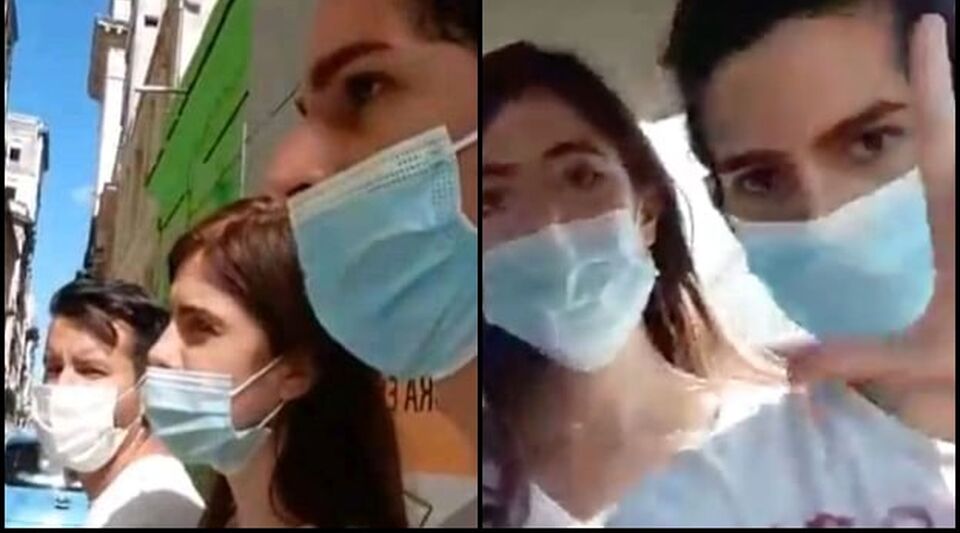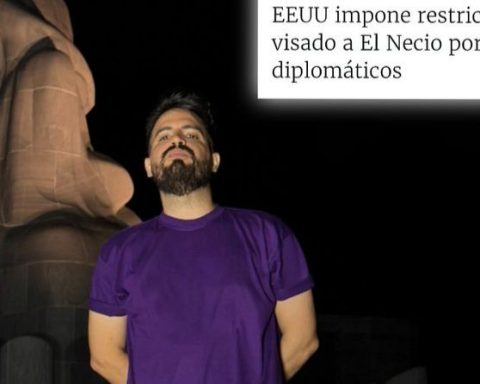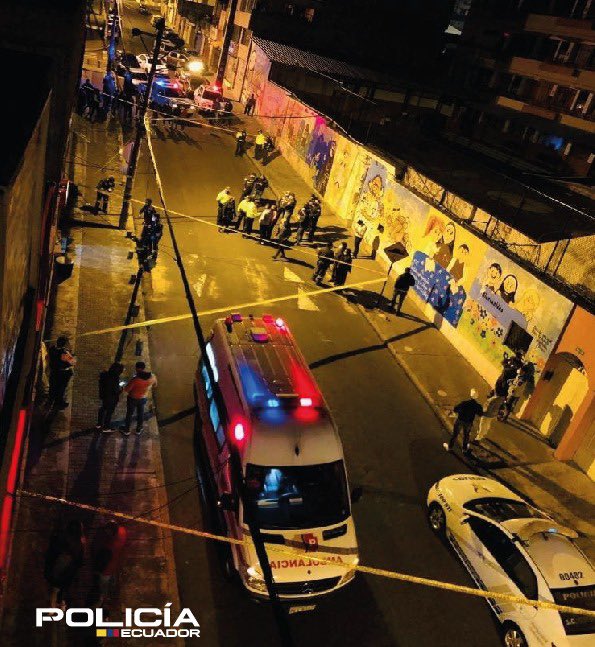Three new trials of the July 11 protesters in Cuba will take place this week. they will be, reports Justice 11J, in Mayabeque and Havana, 45 detainees.
Given the lack of information from the Cuban authorities, it is still the civil society organizations and the relatives of the prisoners who report on the 11J processes.
The activists Carolina Barrero, Daniel Triana and Arian Cruz, who arrived at the entrance of the People’s Supreme Court, in Obrapía and Aguiar, Old Havana, “in protest” against the trials and in solidarity with the relatives of the detainees, were arrested the this Monday morning.
Within the police patrol, the young people repeated this stanza of the poem Pour, heart, your sorrow, by José Martí: “Verse, they speak to us of a God/ where the deceased go:/ verse, or they condemn us together,/ or we both save ourselves!”.
In addition, they shouted slogans such as: “justice for the people”, “freedom for political prisoners”, “stop extreme cruelty” and “down with the empire of fear”
In addition, they shouted slogans such as: “justice for the people”, “freedom for political prisoners”, “stop extreme cruelty” and “down with the empire of fear”.
The detainee facing the highest sentence this week, 27 years, is Elieser Gordin Rojas, who will be prosecuted in the trial that begins this Monday and will end on Friday in the Municipal Court of Diez de Octubre, in the capital.
In it they will also judge two minors under 17 years of age: Nelson Nestor Rivero Garzón and Emiyoslán Roman Rodríguez, for whom the prosecutor Mabel Palacios Aties –recently included in the list of repressors of the Foundation for Human Rights in Cuba (FDHC) – asks for 15 years in prison.
In the trials last week in Havana and Holguín, “in response to pressure from civil society,” says Justice 11J, “the charge of sedition was withdrawn or the prosecutors’ petitions were reduced to 12 children under 19 years of age.”
“The charge that would be imputed to them in their place is unknown and, therefore, if the maximum sanctions continue to be applied,” continues the group’s statement, linked to the legal platform Cubalex, which also does not know if the measure “will be applied also to those under 19 years of age who were tried in December in Havana, who are still awaiting sentencing”.
Also for sedition and up to 20 years in prison they ask, in the processes this week in Havana, no less than for 19 detainees
Ten prisoners in Holguín for whom the Prosecutor’s Office maintained its request for very high sentences they went on a hunger strike at the end of his trial on Friday.
Also for sedition and up to 20 years in prison they ask, in the processes this week in Havana, for no less than 19 detainees: Roberto Ferrer Gener, Santiago Vázquez León, Yosney Emilio Román Rodríguez, Carlos Luis Águila Socarrás, Frandy González León, Adonay López López, Harold Michel Mena Nuviola, Jaime Alcide Firdó Rodríguez, Frandy González León, Adonay López López, Harold Michel Mena Nuviola, Jaime Alcide Firdó Rodríguez, Alejandro Becquer Arias, Amaury Leyva Prieto, Julián Yasmany Díaz Mena, Raudel Saborin González, Juan Carlos Morales Herrera, Eduardo Álvarez Rigal and Yasiel Arnaldo Córdova Rodríguez.
In the capital they will also prosecute Yeinier Ibáñez Boude, for whom the Prosecutor’s Office is asking for 18 years, and Frank Daniel Roy Sotolongo, Yassell Guerra Campos, Marcos Antonio Alfonso Breto and Yensy Jorge Machado González, who are exposed to 15 years in prison.
Another 22 protesters will be processed in San José de las Lajas, Mayabeque, 15 of them between this Monday and Wednesday, and the rest on Friday.
Prosecutor Ariagne Pérez Pérez asks for the former between one year of correctional work with internment (in the case of the detainee Sergio Enseñat Valladares) up to 14 years in prison (in the case of Vladimir Castillo Llanes). Apart from them, they prosecute Jorge Yenier Ortiz Aguilera, Rogelio Lázaro Domínguez Pérez, Manuel Velázquez Licea, Alien Molina Castell, Humberto Monrabals Camps, Arturo Valentín Riverón, Enmanuel Robles Pérez, Yusmely Moreno González, Danger Acosta Justi, Yaroski Amat Salabarria, Jesús Pérez Quintero, Emelina Pendás Rodríguez and Mailene Noguera Santiesteban.
The courts on Friday will be María Cristina Garrido Rodríguez, Angélica Garrido Rodríguez, Alexis Pedro Acosta Hernández, Giorbis Pardo del Toro, Osmany Hernández Rodríguez, Yanet Sánchez Cocho and Patricia Lázara Acosta Sánchez, for whom the prosecutor Ruth Rodríguez Reina asks between 6 and 18 years from prison
“They dragged me away and yelled at me ‘filthy, lousy, where are the clothes and money that the Americans send you, look how you’re dressed”
In its most recent report, Justicia 11J denounces the conditions in which the prisoners are found due to the massive peaceful protests that Sunday in July. “We insist on the terrible health conditions of the detention centers in Cuba,” warns the organization, “and we warn of the mistreatment that continues to be denounced by prisoners.”
As an example, the group shared a letter written from prison by Mailene Noguera Santiesteban, who faces up to six years in prison in San José de las Lajas, dated July 17, in which she details the violence with which she was detained, “dragged on the ground” and between blows. “They dragged me away and yelled at me ‘filthy, lousy, where are the clothes and money that the Americans send you, look how you’re dressed,” he says. “I was almost naked, because they entered my house at dawn and when they took my husband [Manuel Velázquez Licea] and they left my 8-year-old son totally alone”.
Justice 11J registers a total of 1,377 people arrested for the July protests, of which 727 are still imprisoned, including 70 women and 15 minors. At least 361 have been tried in “summary or ordinary proceedings.”
The first allusion to these trials by the official press appeared this Monday, on the occasion of the opening of the new judicial year. “Similarly, it has been up to us to judge those who, acting as pawns in the subversive attacks and attempts to destabilize the enemies of the Revolution, have committed acts of vandalism, violent attacks against authorities and officials, and other serious crimes,” said the president of the People’s Supreme Court, Ruben Remigio Fierropick up the diary Granma.
This is the same judge who had pronounced much more conciliatory words last July: “Various political opinions, even those with a different political meaning from the prevailing one in the country, do not constitute a crime, thinking differently, questioning what is being done, that in itself does not constitute a crime. Moreover, demonstrating far from constituting a crime constitutes a constitutional right of the people.
However, Remigio Fierro has long been regarded as a hard-liner and for this reason, figure since May 2019 on the list of Cuban repressors of the FDHC.
________________________
Collaborate with our work:
The team of 14ymedio is committed to doing serious journalism that reflects the reality of deep Cuba. Thank you for joining us on this long road. We invite you to continue supporting us, but this time becoming a member of our journal. Together we can continue transforming journalism in Cuba.

















